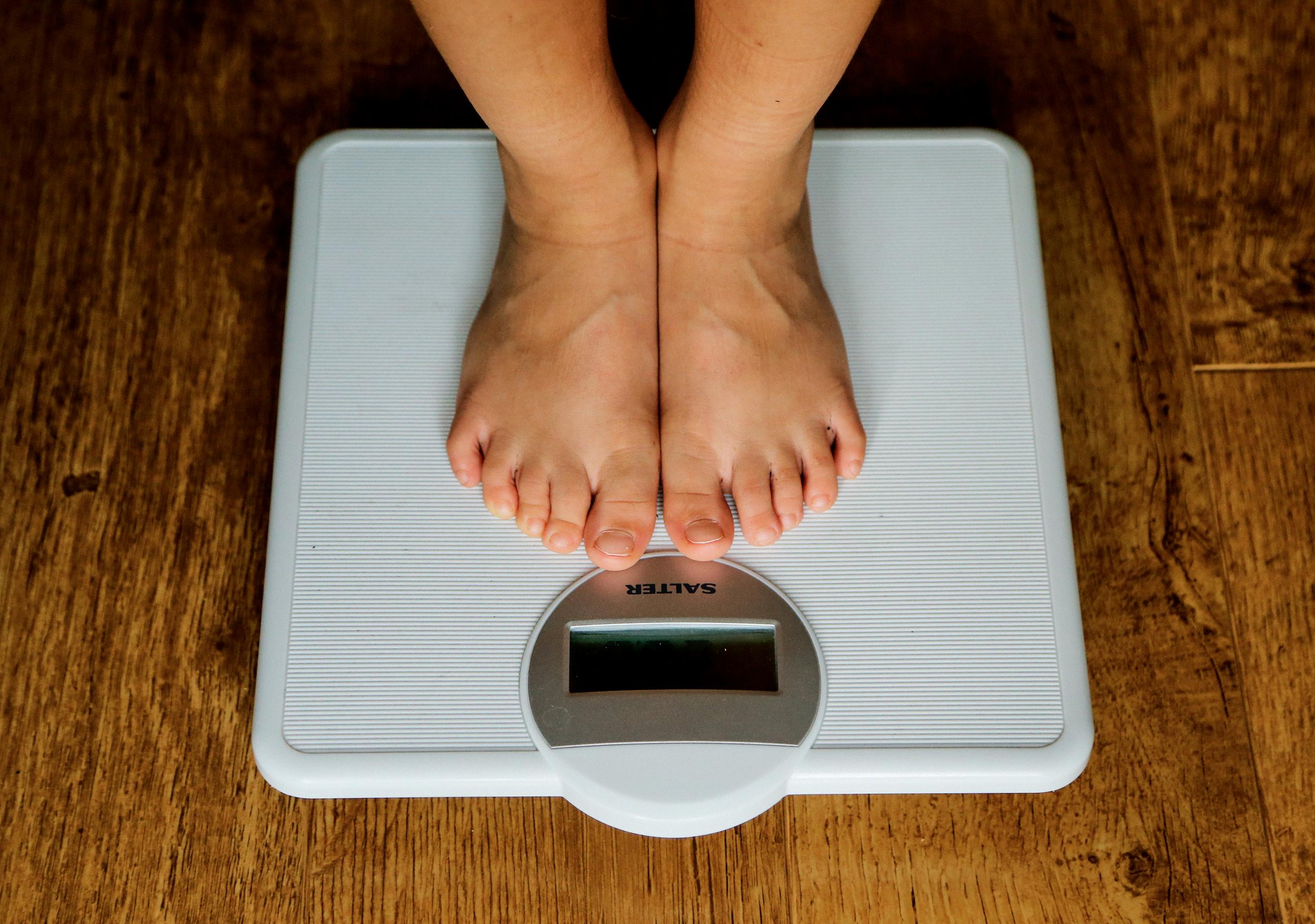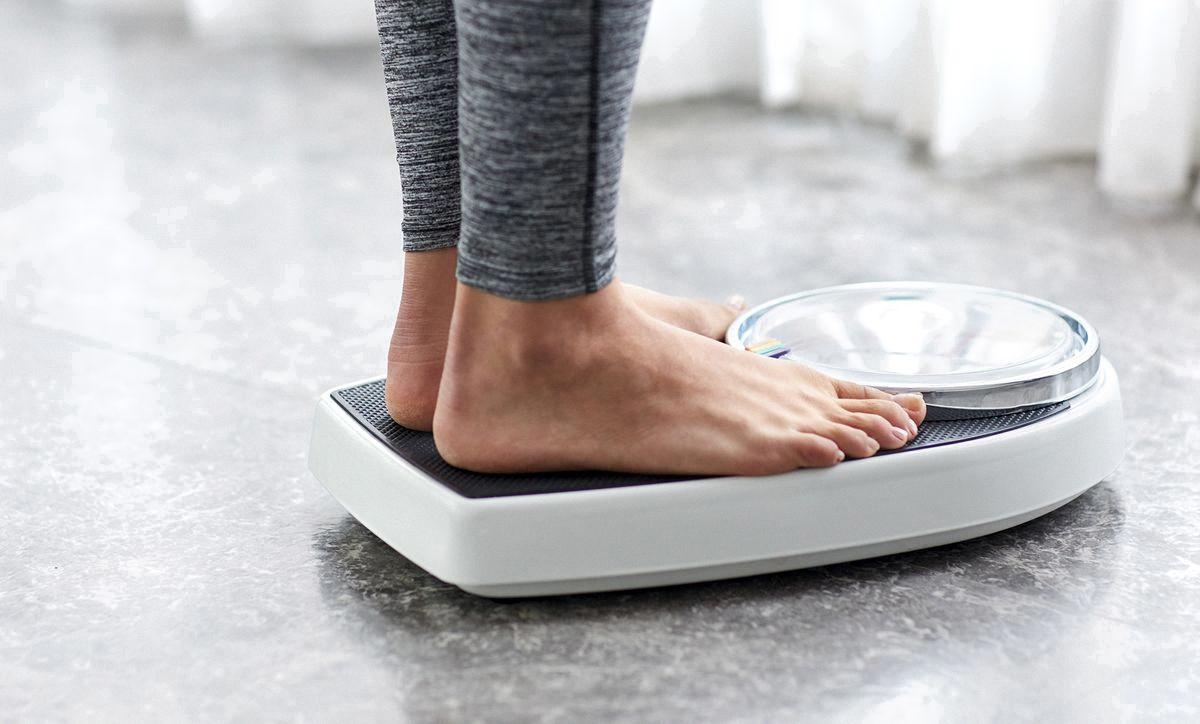Weighing yourself is an important part of tracking your health goals, but can you weigh yourself on your period? The answer is yes and no. It can be helpful to track your weight during your menstrual cycle, but it’s important to understand how hormones and water retention can affect the accuracy of the numbers on the scale.
First, it’s important to know that fluctuations in weight are normal during your menstrual cycle. Hormonal changes can cause water retention, which can lead to a temporary increase in weight. This is why you may notice that your weight goes up a few days before your period starts. This is completely normal and should not be a cause for concern.
If you are trying to track your progress or maintain a specific weight goal, it’s best to weigh yourself first thing in the morning before breakfast when hormonal fluctuations are at teir lowest point. This will give you the most accurate reading.
It’s also important to remember that weighing yourself every day may not be beneficial because of these natural fluctuations in weight throughout the month. Instead of weighing yourself every day, try weighing yourself once per week or once per month instead. This will give you a better picture of any actual changes in body composition or weight over time, rather than just day-to-day fluctuations due to hormones or water retention.
Overall, it’s perfectly fine and safe to weigh yourself during your period if you are tracking changes in body composition or want to maintain a specific weight goal. Just make sure that you weigh yourself first thing in the morning before eating and remember that daily fluctuations due to hormones and water retention are normal and should not be something that causes concern.
The Effects of Menstruation on Weight
Yes, it is normal for women to gain a few pounds during their periods. This weight gain is caused by hormonal changes that occur during the menstrual cycle, such as an increase in progesterone and estrogen levels. These hormones can cause water retention, which can make you feel bloated and weigh more than usual. Additionally, some women experience sugar cravings or lack of motivation to exercise due to cramps and fatigue associated with premenstrual syndrome (PMS). All of these factors can contribute to temporary weight gain around your period.

Source: nbcnews.com
Weighing Yourself Before or After Your Period
It is generally recommended to weigh yourself after your period, rather than before. During the week leading up to menstruation, hormones can cause temporary fluctuations in weight. Therefore, weighing yourself before your period can give an inaccurate reading and lead to feelings of frustration and disappointment. Weighing yourself after your period is a better option as it will provide a more accurate reading of your body weight. Additionally, it’s important to remember that weight fluctuates naturally throughout the month and this should not be a cause for concern.
The Duration of Post-Menstrual Weight Retention
Period weight gain, which is caused by water retention, typically lasts for three to five days after the start of your period. During this time, you may notice an increase in your body weight due to the added fluid. However, this additional weight is temporary and shoud go away within a few days of the start of your period. To help reduce bloating and water retention during your period, it’s a good idea to drink plenty of water and avoid processed foods and sugary beverages. Additionally, regular exercise can help reduce any extra weight that might be lingering from your period.
The Impact of Menstruation on Weight
During the premenstrual, or luteal phase of your menstrual cycle, you may experience a slight weight gain of up to 5 pounds. This is due to an increase in fluid retention, and is normal for most women. The extra fluid will typically be released at the start of your period, resulting in the weight being lost again. To avoid unnecessary stress about this natural change in weight, it’s best to weigh yourself at the same time each month – preferably after your period has ended – so you can track any changes over time.
The Dangers of Weighing Yourself During Your Period
Weighing yourself during or a week befre your period is not recommended because your body undergoes several changes during that time. During the menstrual cycle, the body retains fluids, which can lead to water retention and an increase in weight. This water retention can cause swelling in the breasts, stomach and limbs, resulting in a temporary weight gain of up to 3-5 pounds. Additionally, you may experience cravings for sugary foods due to hormonal changes during this time. Therefore, stepping on the scale regularly during this period may be discouraging and could impact your motivation levels. To get a more accurate measure of your weight, it is best to wait until after your period before checking your weight.

Source: bloomberg.com
The Amount of Weight Gained Before a Period
It is normal to gain between three and five pounds in the days leading up to your period. This extra weight is typically a result of water retention and hormone fluctuations, and it usually dissipates within a few days after your period starts. While this weight gain can be uncomfortable or inconvenient, it’s completely normal and nothing to worry about.
The Impact of Menstruation on Weight
No, you do not weigh less on your period. Your weight can fluctuate throughout the month due to a variety of factors, but the menstrual cycle itself does not directly influence weight loss or gain. Some people may experience an increase in appetite and food cravings during their menstrual cycle due to premenstrual syndrome (PMS), and that could lead to small fluctuations in weight. Additionally, water retention caused by hormonal changes may also result in temporary weight gain during your period. However, these changes will usually be relatively small and should not affect long-term weight loss goals.
Conclusion
Overall, weighing yourself can be a useful tool for tracking your progress and overall health. However, it is important to keep in mind that period-related weight gain is normal, and the fluctuations that can occur should not be taken as an indication of health or fitness. Additionally, weigh yourself before your period starts to get the most accurate reading. When done regularly and in conjunction with other healthy habits such as exercising and eating well, weighing yourself can be a helpful way to stay on track with your health goals.
